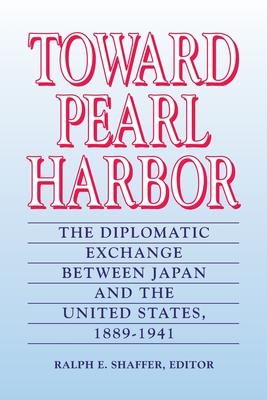An oil boycott was the crucial factor in the attack on Pearl Harbor. It was organized by the U.S. against Japan, which feared economic strangulation, and attacked Pearl Harbor as the cul-mination of a period of political, economic, and military compe-tition between Japan and the West. Japan was a new world power and in the 1930s created a "sphere of interest" in East Asia, as the U.S. and the European powers had done before. But the latter opposed aggressive imperialism by a non-Western power with diplomatic and economic means.
The irreconcilable differences between Japan and the U.S. in the 1930s and early 1940s are reflected in this selection of diplomatic sources which include draft treaties, diplomatic notes, intercepted messages, and other documents. The result is a case study of the origins of WWII, the events that led to the attack on December 7, 1941, and of diplomacy gone awry.
